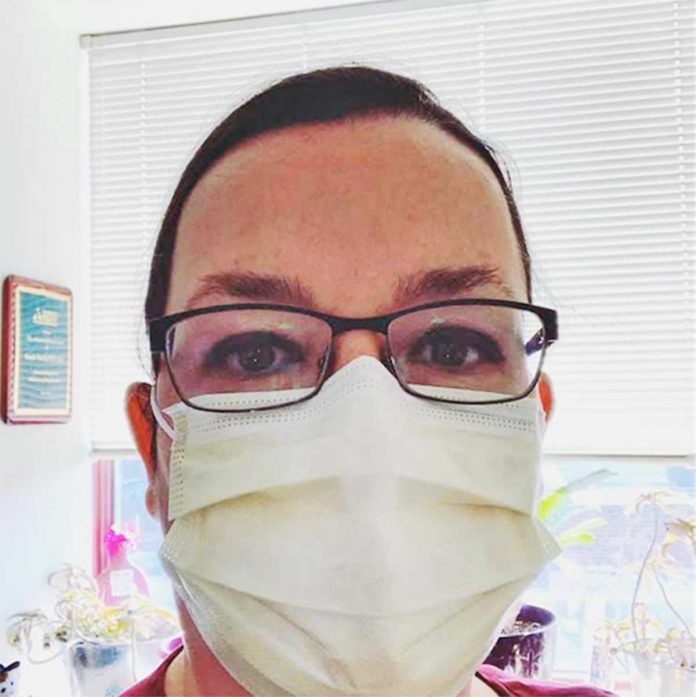
Both Philadelphia FIGHT and Mazzoni Center continue to provide health services to existing patients with some modifications, as confirmed cases of the new coronavirus continue to rise both locally and nationally.
During the April 7 Philadelphia City Hall COVID-19 briefing, Health Commissioner Tom Farley announced 544 additional confirmed cases of the new coronavirus in Philadelphia, raising the number of known cases in the city to 4,272. He also reported 20 additional virus-related deaths since the previous day, bringing the total number of city-wide deaths to 65. “There are still plenty of medical beds available [in the area], about 40%,” Farley said in the brief.
FIGHT’s Critical Path Learning Center issued a digital guide to COVID-19 resources, including phone numbers and web information for the Social Security Administration, the Pennsylvania Department of Human Services, local hospitals and more.
For the duration of the pandemic, FIGHT staff have merged three of the organization’s practices — the Jonathan Lax Treatment Center, the John Bell Health Center and the Y-HEP Adolescent and Young Adult Health Center — into one, Chief Executive Officer Jane Shull told PGN. All three clinics are running under the same system, and the organization’s phone system has been made more efficient, thus expediting care.
FIGHT staff have also begun to administer new coronavirus testing at the Lax Center, but only for symptomatic patients who have consulted a doctor. Patients who don’t show symptoms but still need medical care can get that care at John Bell. All patients must call in advance.
“We’ve got some people who have been heroines in putting [the new practice] together in a really short period of time,” Shull said. Dr. Stacey Trooskin, director of viral hepatitis programs, Staff Physician Dr. Janet Hines, Chief Quality Officer Sarah Smith and Director of Clinical Operations Mimi McNichol have been instrumental in combining the practices and making operations more efficient, Shull said. Trooskin, Hines and Smith work at the Lax Center.
“All of this was done with various teams but led by those four women, who I think should just be above and beyond,” Shull added. “They’re all working like 14-hour days.”

Following changes to the Pennsylvania Medical Society’s rules regarding telehealth billing, FIGHT has been able to carry out billable telehealth, Shull said. “It should keep increasing so that at least what we’re doing in relation to people who either have Medicaid, or maybe they have private insurance, we’re going to get some revenue for it,” she said.
FIGHT’s dental practice is now open for emergency procedures only, in the wake of loosened state regulations dictating that no dental school would be allowed to see patients. The majority of the organization’s dental medicine is still being done remotely.
Additionally, FIGHT staffers are devising a system to have patient medications delivered to them, “and that does include homeless people — we will get their medicine delivered to them one way or another,” Shull said. “That’s going to take a little while, but we are absolutely working on that so they don’t have to go into a pharmacy, they don’t have to travel on public transportation.”
Like many other health centers and hospitals, FIGHT leadership is doing everything in its power to maintain a supply of personal protective equipment during the outbreak. On March 26, Gov. Tom Wolf announced that he will spend $50 million “in transferred state funding to purchase medical equipment and supplies for hospitals, nursing homes and emergency workers to help fight the COVID-19 pandemic in Pennsylvania,” according to a press release on www.pa.gov.
“We have been trying in various ways to get the attention of the state because this federal reserve that we hear about is getting allocated by the states,” Shull explained. “The state was originally taking the position that anything they got was going to the hospitals. If that happens, it’s also going to help lead to the collapse of the hospitals. They should be asking for more, and they should be saying that they need it particularly [for places like us.]”
Mazzoni Center leadership is instituting a short-term continuity plan to reopen its most essential services, according to a March 26 press release. That plan also dictates full or partial furloughing of roughly 40% of the center’s staff members, with health benefits intact, and increased IT staff to facilitate remote working conditions. Members of leadership have volunteered to take temporary pay cuts in order to redistribute funds to other facets of the center’s services.
“We will continue connecting with our patients through portal messages, telephone visits and carefully screened in-person care, as we did in the first two weeks of our coronavirus response,” Mazzoni Center Chief Medical Officer, Nancy Brisbon, MD, said in the release.
“Additionally, in the next two weeks, telemedicine care will be available for patients with cell phone and/or computer access. Patients are asked not to walk into the facility to prevent potential exposure to other patients and staff.”
Other areas of Mazzoni’s services, including medical case management, housing subsidy and food bank programs will be reinstated full time “to help some of the most vulnerable clients in the community continue to meet their basic needs,” according to the release. Mazzoni staff members plan to institute online iterations of some of their social services programs, such as OUR Way and the Trip Project.
Ask questions, get answers about COVID-19
